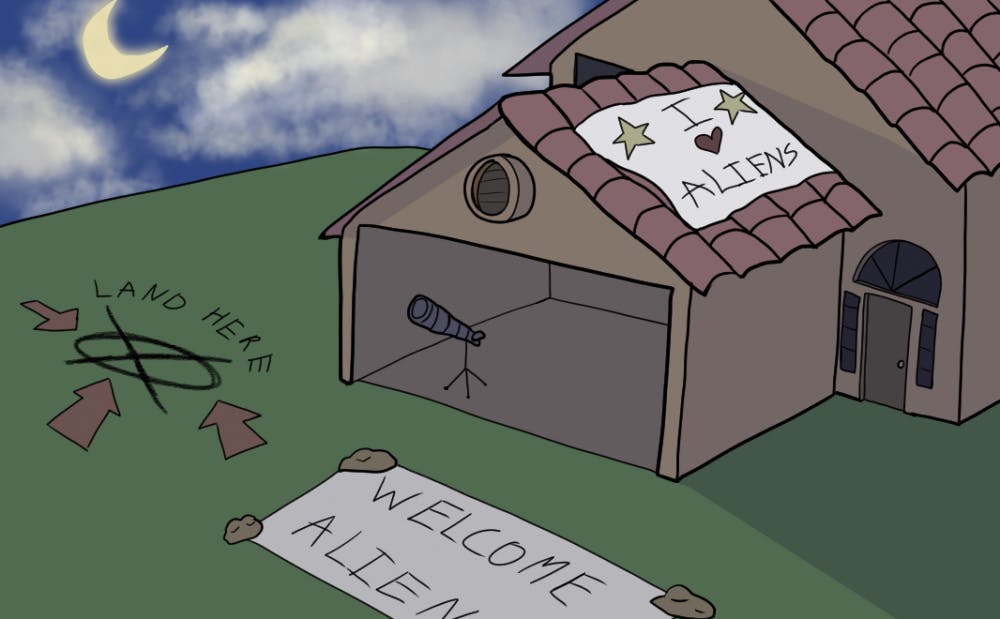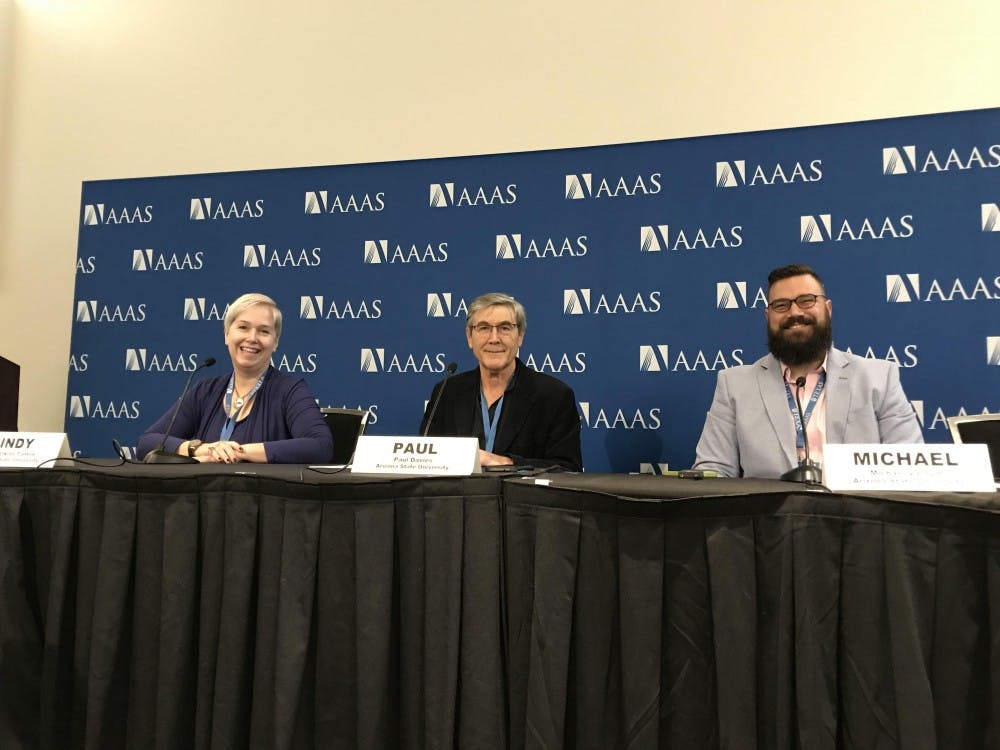Scientists from ASU’s Interplanetary Initiative conducted a study that gauged how people would hypothetically react to news about alien life.
Results showed that the subjects reacted using more positive language than negative language and also used more terms associated with reward than risk, researchers said.
Hannah Bercovici, a first-year graduate student in the School Of Earth and Space Exploration, became involved in the study through the Interplanetary Initiative, an interdisciplinary program that studies the relationships between humans and space.
The group of researchers also included ASU psychology professor Michael Varnum, who was the study lead, and psychology graduate student Jung Yul Kwon.
The original study was presented at the yearly American Association for the Advancement of Science meeting on Feb. 16, and the project is expected to roll out to another 30 countries spanning the globe.
The team ran U.S. media clips that described potential signs of microbial life through a program called Linguistic Inquiry and Word Count, or LIWC. The program analyzed the words written about the discoveries to determine the underlying sentiments.
“(LIWC) assesses words based off the dictionary for different emotional reactions,” Bercovici said.
The researchers also measured the reactions of American subjects to the media clips, which included an article about scientists finding microbial life on Mars. The discovery ended up being a false positive, but using real articles helped the researchers measure their results more accurately.
Bercovici said there are two different types of psychological reactions. By giving subjects a scale used to rank their feelings about the topic, the team was better able to assess the “gut reaction” of the subjects.
“Later on, we asked them to write a paragraph of what they think about the article, and we ran it through (LUC,)” Bercovici said.
People associated more risk with microbes based on their gut reactions than in their written reflections. Bercovici said Americans were more likely to see the potential benefits of the discoveries once they had assessed the outcomes more deeply.
“We specifically concentrate on microbial life, since that seems like the most likely case of what we'll find somewhere else in our solar system,” Bercovici said.
Another expert in the field of psychology and extraterrestrial life disagreed. Douglas Vakoch, the president of Messaging Extraterrestrial Intelligence, who completed a similar study in China, focuses his research on finding intelligent life.
Although microbial life is likely more abundant in the universe than intelligent life, Vakoch said that it is much harder to find because of its smaller size.
As technology progresses, Vakoch said more sophisticated equipment will allow scientists to better detect more forms of life, encompassing both intelligent and microbial life.
"It's important to take it ahead of time how people will respond to (the discovery of extraterrestrial life) because historically, it's been that everyone is going to freak out," Vakoch said. "With every passing year, it seems more and more likely that there's life out there."
Paul Davies of the Beyond Center at ASU agreed that sentiment towards alien discoveries has changed significantly over the years. Growing up against the backdrop of the Cold War and The War of the Worlds shaped public perception greatly.
"Those days, everybody’s feelings about it was colored by the Cold War," Davies said. "So, following World War II, people had this sort of dread about stuff coming from the sky."
Media depictions have changed since then, but Bercovici said many portrayals are still cartoonishly negative.
"I think it's absolutely exaggerated," Bercovici said of current media depictions. "That's just Hollywood ... You have to create some conflict."
Bercovici said that science-fiction depictions should push toward being more varied and offer a positive perspective of alien discoveries. She also argued that there are some merits to imagined negative scenarios.
"I think it also prepares people in a way where you're giving the worst possible scenario within your culture," Bercovici said.
Correction: An earlier version of this story incorrectly named the Linguistic Inquiry and Word Count program. The article has been updated to reflect the changes.
Reach the reporter at sabine.galvis@asu.edu or follow @sabinegalvis on Twitter.
Like State Press on Facebook and follow @statepress on Twitter.





